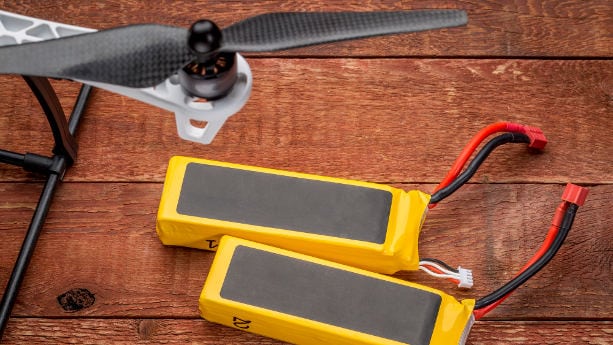
Selling lithium batteries and products that contain lithium batteries on Amazon requires compliance with various regulations, safety standards, and other requirements. These includes UL standards, also dangerous goods requirements.
This guide covers different types of lithium batteries and the requirements that apply in terms of standards. We also take a look at button and coin batteries which are covered by additional requirements.
This guide only takes requirements related to selling lithium batteries on Amazon in the United States into consideration. Note that similar requirments also apply when selling products on Amazon in the European Union, Australia, Japan, and elsewhere, although specific requirements may differ.
Methodology: We used information that we found on Amazon Seller Central Guidance pages hosted on Amazon.com (US version). We link to some of these pages, in the sections below.
We also refer to US regulations, such as 16 CFR Part 1263 – Safety Standard for Button Cell or Coin Batteries and Consumer Products Containing Such Batteries.
Content Overview

FREE CONSULTATION CALL (US, EU & UK)
- Request a free 30-minute call with Ivan Malloci to learn how we can help you with:
- Find product requirements
- Certification and labeling
- Lab testing
Listed types of lithium batteries
Amazon lists three types of lithium batteries:
- Lithium-ion batteries
- Lithium metal batteries
- Lithium-ion polymer batteries
Note that we do not know if this list is definitive.
Lithium-ion batteries
Lithium-ion batteries are rechargeable batteries that use lithium compounds when it comes to the electrode materials.
Products that use Lithium-ion batteries sold on Amazon.com include:
- Cellphones
- Digital cameras
- Tablets
Lithium-ion polymer batteries
Lithium-ion polymer batteries are rechargeable and normally consist of a few identical secondary cells aligned in parallel.
They are used in some portable electronic products such as:
- Personal computers
- MP3 players
- Cameras
Lithium metal batteries
Lithium metal batteries are usually non-rechargeable batteries that contain a lithium metal anode. Some of these batteries might be flat and round, such as those used in watches.
Lithium metal batteries are often used in products such as:
- Watches
- Flashlights
- Calculators
Learn more: Link
UL Standards
UL standards are often voluntary. However, in practice, you must have your products tested against relevant UL standards to ensure the safety of said products. Additionally, Amazon requires lithium batteries, power banks, and other products containing lithium batteries, to comply with these standards. This means you must get those products tested if you want to sell them on Amazon.
Here are a few UL standards that are relevant to lithium batteries and lithium batteries powered devices, and that are listed on Amazon guidance pages:
a. UL 62133 – Secondary cells and batteries containing alkaline or other non-acid electrolytes — Safety requirements for portable sealed secondary cells, and for batteries made from them, for use in portable applications — Part 2: Lithium systems
b. UL 2054 – Household and Commercial Batteries
c. UL 2056 – Safety of Lithium-ion Power Banks
d. UL 2272 – Standard for Electrical Systems for Personal E-Mobility Devices
Note that other standards for lithium batteries may exist.
Requirements for button cell and coin batteries
Amazon requires you to ensure that your button cell or coin batteries comply with both Reese’s Law and 16 CFR Part 1263 requirements, such as the ones listed below.
Reese’s Law
- Performance standard for battery compartments
- Warning labeling
- Packaging requirements according to 16 CFR Part 1700.15
16 CFR Part 1263
- Performance requirements according to ANSI/UL 4200A standards
- Warning labeling
- Safety-related statements
Energy content
Amazon provides different energy content limitations for cells and batteries, according to the region and the product type.
Cells
Amazon defines a cell as one electrochemical unit that has one positive electrode on one terminal and one negative electrode on the other terminal. This unit presents a voltage differential across both terminals, and it might have protective devices.
Cells have three different energy content thresholds; we list them below, along with examples of regions tfor which Amazon has approved or rejected said thresholds.
0-≤20 Wh for lithium ion (including Lithium-ion polymer) / 0-≤1g for lithium metal
- United States – Approved
- Canada – Approved
- Europe – Approved
>20 Wh – ≤60 Wh for lithium ion (including lithium-ion Polymer) / >1 – ≤5g for lithium metal
- li>United States – Approved
- Canada – Approved
- Europe – Rejected
>60 Wh for lithium ion (including lithium-ion Polymer) / >5g for lithium metal
- United States – Rejected
- Canada – Rejected
- Europe – Rejected
Batteries
According to Amazon, a battery consists of at least two electronically connected cells fitted with vital components, such as terminals or protective devices. Units with two or more cells are commonly known as “battery packs”, “modules”, or even “battery assemblies”.
Batteries also have three energy content thresholds and are either accepted or rejected in certain regions based on said thresholds. Here are those thresholds and several regions that are either Amazon-accepted or – rejected.
0 Wh – ≤100 Wh / 0 – ≤2g for lithium metal
- United States – Approved
- Canada – Approved
- Europe – Rejected
>100 Wh – ≤300 Wh for lithium ion (including lithium-ion Polymer) / >2 – ≤25g for lithium metal
- li>United States – Approved
- Canada – Approved
- Europe – Rejected
>300 Wh for lithium ion (including lithium-ion Polymer) / >25g for lithium metal
- United States – Rejected
- Canada – Rejected
- Europe – Rejected
UN 38.3 Test summary
Amazon requires sellers to provide a UN 38.3 lithium battery test summary for the lithium batteries they sell on the platform. It also mentions the US Department of Transportation’s Pipeline and Hazardous Materials Safety Administration (PHMSA), which is responsible for the Hazardous Materials Regulations.
Sellers must upload this summary when they are setting up their ASIN.
Dangerous goods requirements
Lithium batteries are classified as dangerous goods. As such, you must comply with the dangerous goods requirements if you sell your products via the platform’s Fulfilled by Amazon (FBA) program.
Amazon requires you to provide dangerous goods information regarding your batteries, your battery-containing products, or other products regulated as dangerous goods, when you create an FBA listing. You start by clicking the “Add dangerous goods information” button and then follow the steps listed below.
Battery information
Under the “Battery Information” section, use the dropdown menus to indicate how the product utilizes batteries (or if the product is the battery), and the battery’s composition. If the product uses batteries, it might be a dangerous good, thus, you must provide information such as the following:
- Battery type or size
- Number of batteries
- Battery weight (in grams)
- Cells per battery
- Lithium battery packaging
- Watt-hours per battery
- Lithium content (in grams)
Safety data sheet (SDS)
You must ensure your product is correctly classified by providing either a safety data sheet (SDS), or an exemption sheet. A proper SDS must:
- Be made or last updated within the last 5 years
- Include information about new GHS or CLP hazard identification
- Match your product’s listing
- Include all 16 sections of the SDS
c. Some batteries may be exempted from the SDS requirement. In this case, Amazon accepts an exemption sheet.
Packaging requirements
Amazon guidelines on packaging batteries lists requirements such as:
a. Permitted materials
b. Prohibited materials
c. Guidelines on drop tests
d. Bundle units requirements
According to its guidelines, Amazon only permits rigid packaging materials, such as boxes or clamshell plastic. Prohibited materials include zipper-sealed bags and shrink wraps.
Learn more: Link
Prohibited products
Amazon lists numerous examples of products it prohibits you from listing, on its guidance page Restricted Products > Electronics. This includes some types of batteries, such as:
a. Cylindrical lithium ion cell battery of the following types: 14500, 16340, 18650, 20700, 21700, and 26650
b. Products that include the above-mentioned batteries
c. Some types of branded replacement batteries
d. Batteries that have expired


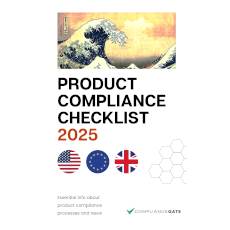
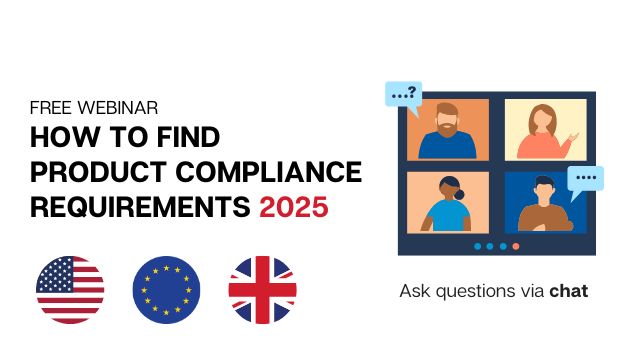
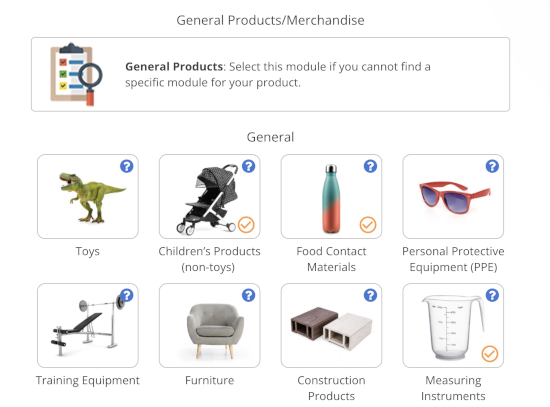


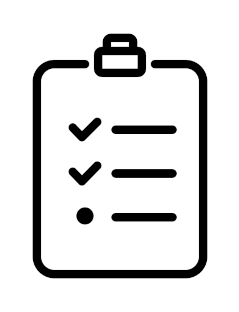





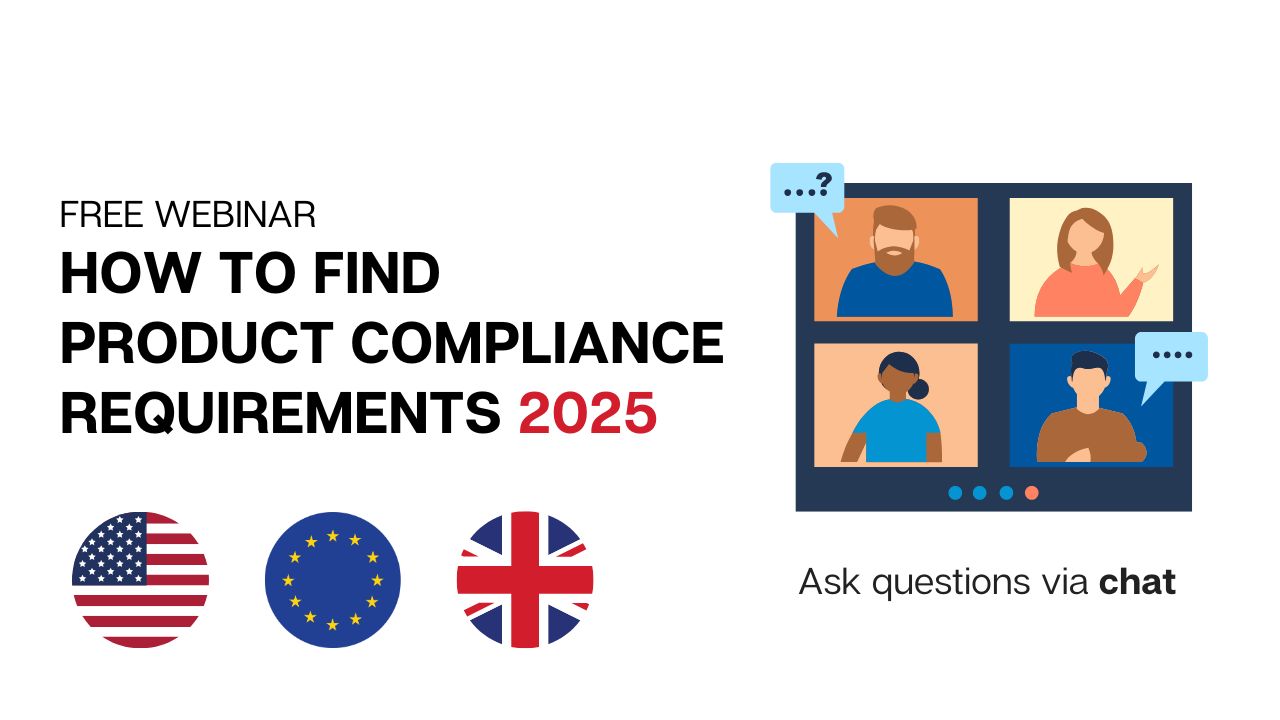

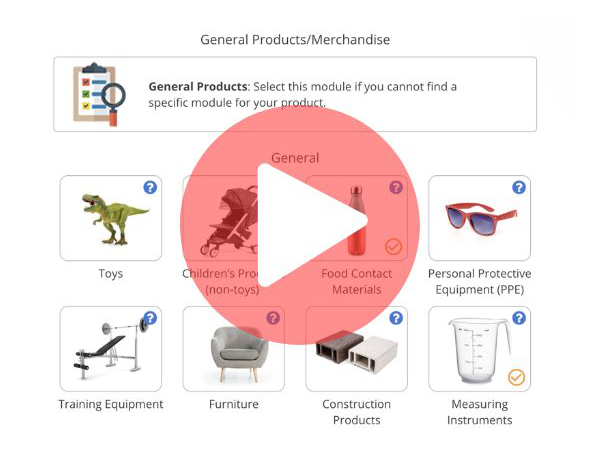
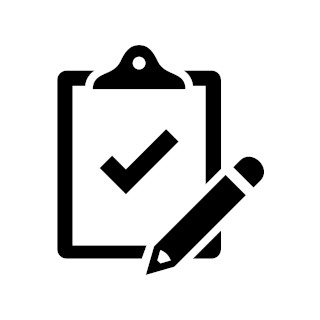 Create compliance checklists for your product (US, EU & UK)
Create compliance checklists for your product (US, EU & UK)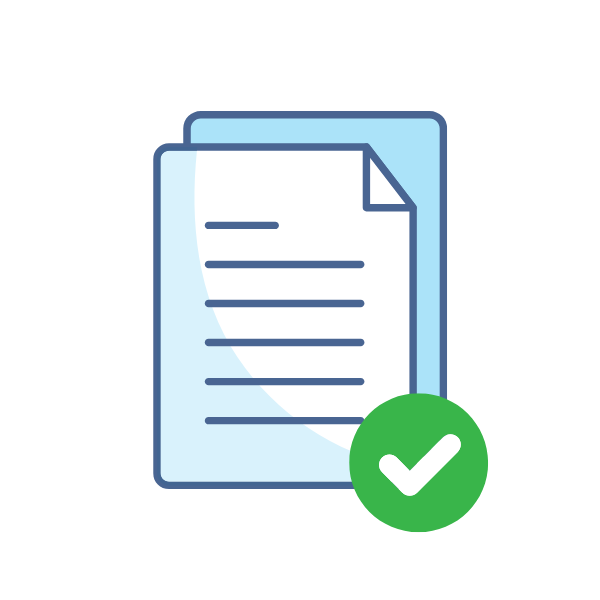 20+ product certificate templates
20+ product certificate templates Create label files
Create label files Book product testing
Book product testing
I have a product I want to sell that contains a battery pack that used 6 18650 batteries. Does that mean I cannot sell it, or is this only for loose batteries of that kind? Does anyone know?
so what would say an adult massager fall under? label requirements wise? and the battery that was in it I believe was lithium
and let’s also say this product was sold on Amazon and I have TRIED to issue a complaint and have requested seller contact info and requested a product information manual that SHOULD have been in my box but was not, as there were NO warnings or disclaimers about product and injuries resulted from this product, but Amazon will NOT respond to my requests for this info so I can contact the manufacturer for a product liability personal injury claim
Greetings;
We have been selling karaoke microphone contains 18650 batteries for 2 years
2 weeks before, We got a notification from amazon about our Listing has Removed by product safety issue.
We have been approved by amazon wiht MSDS on UN38.3 hazmat program and we also got approved by fcc.
We do not know how to solve this issue.
Amazon keep sending us this message below
———————————
Greetings,
Please note that the provided ASIN(s) cannot be approved due to safety reasons.
As part of our ongoing efforts to provide the best possible customer experience, Amazon is implementing listing restrictions for [Lithium Ion Battery Cells]. You will no longer be able to sell these products and your listings will be removed. We are not accepting applications to sell these products.
We appreciate your cooperation and thank you for selling on Amazon.
We have been selling this product for more than 2 years.
Hey, Thanks for the reply,
I have just encountered a very similar problem the other day,
Would you please tell me how you ended up resolving the issue + any solutions/strategies
This doesn’t even mention NEC 2020 or section 480 so it leaves out a whole section of the market. Its a complete failure to address so many questions.
Hello,
so all the products with following battery types can’t be sold on amazon?
Cylindrical lithium-ion cell battery types: 14500, 16340, 18650, 20700, 21700, and 26650
No Matter what catalog it located in?
Hi Fredrik
Our product uses a lithium ion battery, Lithium Ion Battery contained in equipment. We are going to send our products to Amazon Italy for distribution. It is essential that we register on the Lithium Ion Disposal Registry if we are not the battery manufacturer.
Hi fredrik.
Thank you for your article.
in my case, I submitted MSDS for li-ion batteries to Amazon.
but, Amazon electronic safety team required the submission of reports in accordance with IEC 62133:2.
so I additionally submitted a CB-report(according to IEC 62133:2).
but.. Amazon required other reports again.
The problem is that Amazon doesn’t say at all what additional materials are needed.
I don’t know if they want the UN38.3 report or something.
Because of this terrible situation, I’ve been filing complaints with Amazon over and over again for 6 months.
What I understand is that the product model name on the MSDS and the actual product model name must be the same.
I meet those conditions.
CB-report is also a data generated by TUV according to IEC 62133:2, so this also meets the conditions.
But Amazon keeps saying that there is not enough evidence.
What am I missing?
I want to get your help.
Hi Adam,
Where did you get this report from? We can take a closer look at this if you fill out this form: https://www.compliancegate.com/amazon-case-report/
Hi, is selling 18650 still prohibited. or one can sell it if UN38.3 is available ?
You need to ask Amazon directly. We can’t speak on their behalf.
Him
I intend to start seling a privacy door sign with recharcable lithium ion baterry.
i need aproval from amazon for this?
Factory from China alredy provide me a UN 38.3 REPORT
Amazon don’t give out “approvals” but they may require certain documents. For example, they may require UL test reports.
Hello
Thank you for your article.
I’m wondering if my product is a beauty product with USB, do I need to upload a SDS sheet?
Thank you
Hi Sofya,
Does it contain a lithium battery?
Great article Chuiyan. Very thorough and informative.
Our lab performs all of these tests on battery and battery powered products. I think you nailed the information with detail and accuracy. Very informative to the reader not familiar with our industry.
Hi Scott,
I sent you an email